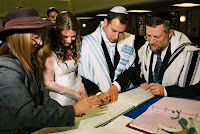It’s the ‘rock of our existence,’ but a divided and dismembered city that has in our deceptive words become ‘united Jerusalem.’ It’s a city whose political future is more enshrouded in uncertainty than any other in Israel, but it’s ‘ours forever and ever.’ So this discourse, which is accompanied by plenty of self-deception, is being conducted among ourselves, only ourselves.
In other words, because Jerusalem is an important historical, cultural, and religious site for Muslims, Jews, and Christians, authority over the area has been extremely controversial and violently contested stemming from the foundation of the city itself. On the one hand, the State of Israel has gradually been expanding the borders of the city outward by installing settlements in land usually occupied by Palestinian Arabs, while on the other hand, Palestinian Arabs push back by alimentally maintaining control over the Temple Mount, otherwise known as Haram al-Sharif (Noble Sanctuary in Arabic).
Apparently, Sheik Salah, the leader of the Islamic Movement, has initiated “unauthorized” excavations and construction within the Temple Mount, and, in the process, has succeeded in destroying many historical artifacts relating both Jews and Christians to the Temple. Although Muslim fundamentalists are responsible for the destruction of evidence, they are quick to point out that there is no proof that either Jews or Christians can claim historical ownership, or even relation, to the site. During the Second Intifada, Sheik Salah, proclaimed that “Israel’s insistence on sovereignty over Haram al-Sharif is a declaration of war on the Muslim world. Only Muslims and Palestinian people are allowed authority over it. We will share not one stone or grain of sand with the Jews” (Rosenthal 285).
Consequently, today, although Jews and Christians are permitted to visit the site as tourists, only Muslims are allowed to pray there. According to Donna Rosenthal, author of The Israelis, “Fearing international Islamic backlash, a succession of Israeli governments have not stopped the transformation of the Temple Mount.” She continues, explaining that “Demands by Israeli and international archaeologists, engineers, historians, and scholars to inspect the work have been refused” (284). It appears that Palestinians, at least those associated with the Islamic Movement are willing to sacrifice objective truth for the importance of their cause, namely the formation of an independent Palestinian state and the destruction of Israel.
Some Israelis tend to agree with the opinion of the Islamic Movement. For example, in another recent article entitled “Unusual Partners Study Divisive Jerusalem Site” (Published on November 14, 2009) by Isabel Kershner, a journalist from The New York Times, reports that: “Menachem Magidor, president of The Hebrew University, wrote that… ‘I did not feel bothered at all by the fact that another religion was dominating the site.” He goes on to explain that “mutual denial, including Israeli-led archaeological excavations near the mount that threaten Muslim relics…” are at the core of this issue. He insists that these practices “totally flout what is divine!” However, the question of what it means to be divine and who holds the authority to proclaim it is the very source of contention between Muslims and Jews.
Despite the visible differences of opinion within Israel, peace, or at very least, compromise is possible, for, in the words of Magidor, “Can we still not entertain the hope that the holy precinct—what it is and what it symbolizes—will nonetheless one day succeed to inspire people who believe in the one God themselves to become united in their faith?”












































